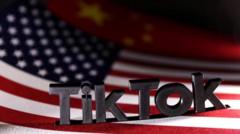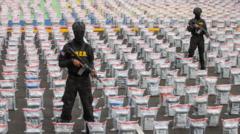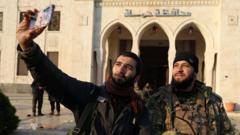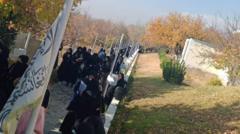The Bakwa District, which flourished as a significant hub for opium and other narcotics during the Taliban's insurgency, is now experiencing a sharp downturn. Following their return to power, the Taliban has implemented strict bans on poppy cultivation, effectively eradicating the crop and transforming the region's economy.
The Transformation of Bakwa: From Drug Hub to Desolate Land Under Taliban Rule

The Transformation of Bakwa: From Drug Hub to Desolate Land Under Taliban Rule
Bakwa District in Afghanistan, once a thriving center of opium production, now faces economic decline as the Taliban enforces a ban on poppy cultivation.
The Once Booming Drug Town Going Bust Under Taliban Rule
Men gathered for prayers on a small patch of grass in Shagai, within Afghanistan's Bakwa District—a region that once flourished as a bustling center for opium, heroin, and methamphetamines. The Taliban, which had openly operated in the region and fostered a unique social experiment, saw thousands relocate to Bakwa, drawn by the prospects of escaping the violence of war while cultivating lucrative poppy crops.
During the tumultuous period of conflict, Bakwa served as both a financial engine for the Taliban and a sanctuary for combatants. The insurgents, reaping financial benefits not only from drug production but also through taxation on goods entering and exiting Afghanistan, amassed significant wealth. The district became an economic powerhouse, generating millions each month through the drug trade.
However, this landscape has changed dramatically under the Taliban's strict governance. Just as quickly as the opium trade escalated in Bakwa, it has now dwindled and, in most cases, vanished entirely. The very group that once thrived on the narcotics economy has enforced a ban on all opium-related activities, seeking to eliminate the crop across Afghanistan. Within two years of peace, the Taliban has accomplished what the US-led coalition could not during two decades of warfare: the near-total eradication of poppy cultivation.
Where once emerald stalks and vibrant poppy flowers filled the fields, the land now stands mostly barren, a stark reminder of Bakwa's former prosperity. The drastic change not only affects the local economy but also transforms the lives of individuals whose existence relied heavily on the ability to cultivate and trade these substances. As Bakwa transitions from a booming drug town to a site of economic hardship, the local population faces significant challenges in adapting to the new regime's policies and the decline of their primary source of income.
Men gathered for prayers on a small patch of grass in Shagai, within Afghanistan's Bakwa District—a region that once flourished as a bustling center for opium, heroin, and methamphetamines. The Taliban, which had openly operated in the region and fostered a unique social experiment, saw thousands relocate to Bakwa, drawn by the prospects of escaping the violence of war while cultivating lucrative poppy crops.
During the tumultuous period of conflict, Bakwa served as both a financial engine for the Taliban and a sanctuary for combatants. The insurgents, reaping financial benefits not only from drug production but also through taxation on goods entering and exiting Afghanistan, amassed significant wealth. The district became an economic powerhouse, generating millions each month through the drug trade.
However, this landscape has changed dramatically under the Taliban's strict governance. Just as quickly as the opium trade escalated in Bakwa, it has now dwindled and, in most cases, vanished entirely. The very group that once thrived on the narcotics economy has enforced a ban on all opium-related activities, seeking to eliminate the crop across Afghanistan. Within two years of peace, the Taliban has accomplished what the US-led coalition could not during two decades of warfare: the near-total eradication of poppy cultivation.
Where once emerald stalks and vibrant poppy flowers filled the fields, the land now stands mostly barren, a stark reminder of Bakwa's former prosperity. The drastic change not only affects the local economy but also transforms the lives of individuals whose existence relied heavily on the ability to cultivate and trade these substances. As Bakwa transitions from a booming drug town to a site of economic hardship, the local population faces significant challenges in adapting to the new regime's policies and the decline of their primary source of income.



















